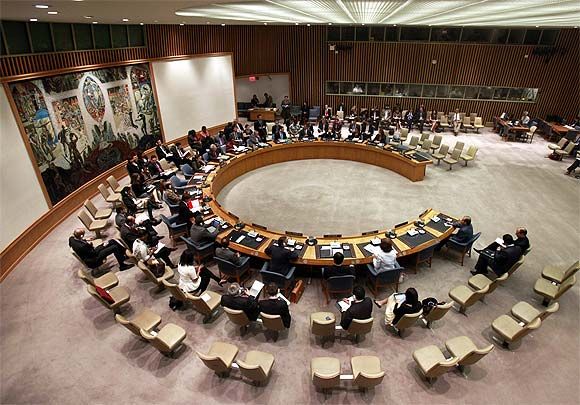 The United Nations Security Council has asked nations not to pay ransom to terrorists in incidents of kidnapping, saying such funds are used by terror groups to support recruitment efforts and carry out attacks.
The United Nations Security Council has asked nations not to pay ransom to terrorists in incidents of kidnapping, saying such funds are used by terror groups to support recruitment efforts and carry out attacks.
In it’s first-ever resolution devoted specifically to kidnapping for ransom by terrorists, the 15-member body called on all member states to prevent terrorists from benefiting directly or indirectly from ransom payments or from political concessions and to secure the safe release of hostages.
The Security Council strongly condemned kidnapping and hostage-taking committed by terrorists for any purpose, including raising funds or gaining political concessions, and called for global cooperation to tackle the problem.
Speaking to reporters after the Council's action on Monday, United Kingdom Ambassador Mark Lyall Grant said it was estimated that in the past three-and-half years, al Qaeda-affiliated and other Islamist extremist groups collected at least $105 million.
"It is therefore imperative that we take steps to ensure that kidnap for ransom is no longer perceived as a lucrative business model and that we eliminate it as a source of terrorist financing," he said. "We need to break that cycle."
The UK-drafted resolution noted that "ransom payments to terrorist groups are one of the sources of income which supports their recruitment efforts, strengthens their operational capability to organise and carry out terrorist attacks, and incentivises future incidents of kidnapping for ransom."
It called on countries to encourage the private sector to adopt or follow relevant guidelines and good practices to prevent and respond to terrorist kidnappings without paying ransom.
Nations were called on to cooperate and engage in dialogue with relevant UN counter-terror bodies to improve capacities to counter the financing of terrorism, including from ransom.
The Security Council recognised the need to continue expert discussions on kidnapping for ransom by terrorists and called on member states to continue such discussions within the United Nations and other international and regional organisations.
It asked the UN Counter-Terrorism Committee to hold a special meeting of member states and relevant international and regional organisations to discuss measures to prevent kidnapping and hostage-taking by terrorist groups to raise funds or gain political concessions.










